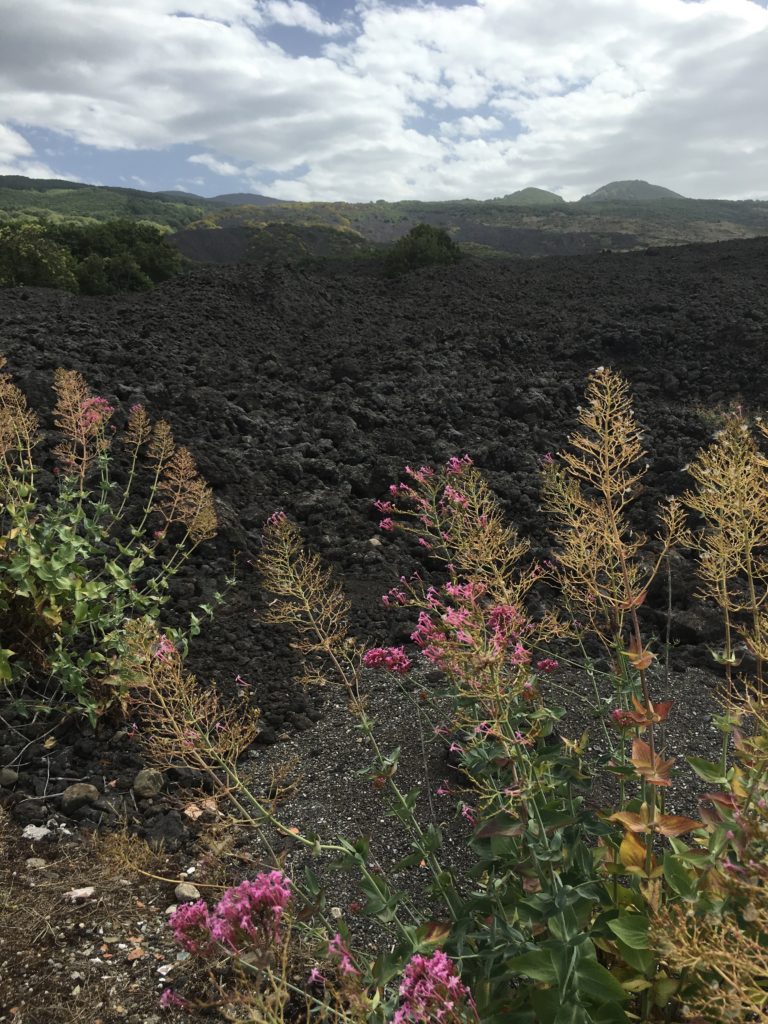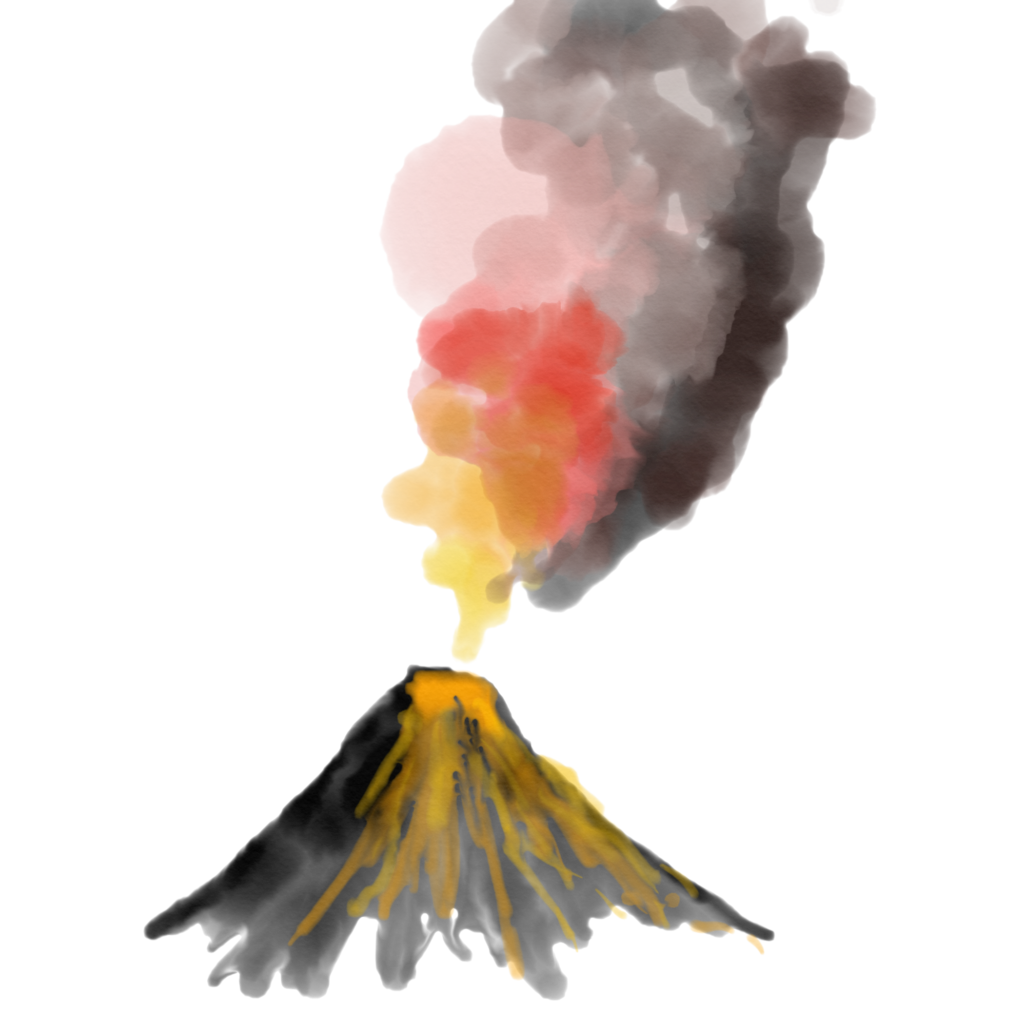You’ve probably heard the term “volcanic wine” thrown around lately. As in, “I only drink volcanic wines these days,” from your hipster friend, or “I heard about this volcanic wine from Etna called Susucaru from Action Bronson, but I can’t find it anywhere,” from about a million followers of Action’s Vice show, F**ck That’s Delicious. As obnoxious as this sounds, the allure is undeniable — many of our favorite wines come from dormant or active volcanoes. Because soils of volcanic origin, the mineral-rich by-product of a volcano’s fury, lend a distinctive character to wines born of it. They are the very definition of terroir, so indicative of their place and time. Also, most volcanic spots are known for preserving indigenous grape varieties that have so much more character than ubiquitous international varietals. This is mostly because little else can grow in layers of volcanic ash and pumice, often situated on steep slopes or in the path of active lava flows. So, obviously, mass production of shitty commercial wine is practically impossible, which in and of itself is positive. But the coolest thing is how boldly the place imprints its DNA on the wine — a boon for wine drinkers craving something authentic.
But first, full transparency: there is no such thing as “volcanic wine”, just
like there is no singular “natural wine”. There is a whole range of volcanic terroir that shows up in very different ways across the spectrum of wine. With variations determined by the timeline of volcanic activity, from pure lava rock relatively fresh out of Vulcan’s mouth, to billion-year-old volcanic sands that have compacted into weathered clay. Soil composition varies a ton depending on the age and what else has been mixed in over years of wind, water, seismic activity, etc. But in general, rocky, volcanic soils are infertile (nutrients not readily available to root systems) and don’t retain water, so vines get stressed, dig deep and focus on the fruit – conditions that lead to great wine. And they share some undeniable characteristics, like earth, smoke, minerals and salt.
Wondering how you can “taste” the volcano in your wine? Not every volcanic wine tastes like a bubbling cauldron of smoke and fire. In many of these wines, a volcano tells a story of powerful, earthy minerals that are palpable, a vibrancy and *fizz* that can be likened to eruption, and salt that makes some of these taste like you are licking a pumice stone. For example, in the Kelley Fox Pinot Gris from Oregon’s Dundee Hills, the smoky, flinty quality is undeniable. But not overpowering. Intriguing and hard to place, this subtle smoke compels you to keep drinking. With the Vino di Anna Palmentino, you get crushed rock stoniness and tension, along with a bright acidity, that take this wine to a new level of freshness and interest. Volcanic mineral salts are evident in the Etnella ‘Attia’, with its savory saltiness that plays like summertime and salt on fresh slices of tomatoes. If you are looking for the rubble, the Vinateros Bravos ‘El Tunel’ Cinsault is full of herbal chalkiness and smoky rustic earth that tells the story of 65-year old vines digging into volcanic earth. And no discussion of volcanic wine is complete without a mention of the all-powerful Mt. Vesuvio, whose deadly eruption buried the city of Pompeii in 79AD, and who is still ready to rumble (the next major eruption is predicted sometime before the year 2400). The slopes of Vesuvio today host a slew of vineyards whose vines thrive in the almost brand-new (by geological standards) mineral-dense pumice and ash soils, from where the most volcanic-tasting wines (that taste like pure liquified volcanic rocks), hail. Taste the smoke and fire, elevated by the freshness that comes with fresh volcanic soils that don’t retain water, in the Poggio Delle Baccanti Lacryma Christi del Vesuvio.

All of these wines are very different in style and provenance, but traits they share are bright minerals, rocks, tart fruit, smoke, and layers of “green” that can be traced back to the tumultuous soils and topographies from which they hail. This is definitely in line with the Rock Juice palate (our name is ROCK Juice, for f*’s sake) — reason #1 we’re in love with these rocky, minerally wines. Also, there’s the allure of a wine grown in soils born of molten earth and ash, sometimes, as on Etna, in vineyards directly in the path of imminent destruction. There’s something ephemeral and romantic — not to mention scarce — in the notion of extreme viticulture. And above all, authentic. In a world of mounting standardization, we crave things that are real, with the rough edges, transparency and variability that come with low-intervention wine. And when you don’t mess with wine from volcanic soil, that distinctive character — whatever it may be, depending on the type of volcanic soil, age, and place — comes through loud and clear. We’ll take that any day over a sterilized glass of could-be-any-grape-from-anywhere wine, manipulated to be “consistent” vintage over vintage, stripped of any cultural or physical identity. Bring on the volcano juice!








No comments yet.